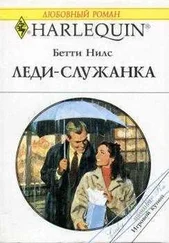Бетти Смит - Maggie-Now
Здесь есть возможность читать онлайн «Бетти Смит - Maggie-Now» весь текст электронной книги совершенно бесплатно (целиком полную версию без сокращений). В некоторых случаях можно слушать аудио, скачать через торрент в формате fb2 и присутствует краткое содержание. Жанр: Проза, на английском языке. Описание произведения, (предисловие) а так же отзывы посетителей доступны на портале библиотеки ЛибКат.
- Название:Maggie-Now
- Автор:
- Жанр:
- Год:неизвестен
- ISBN:нет данных
- Рейтинг книги:3 / 5. Голосов: 1
-
Избранное:Добавить в избранное
- Отзывы:
-
Ваша оценка:
- 60
- 1
- 2
- 3
- 4
- 5
Maggie-Now: краткое содержание, описание и аннотация
Предлагаем к чтению аннотацию, описание, краткое содержание или предисловие (зависит от того, что написал сам автор книги «Maggie-Now»). Если вы не нашли необходимую информацию о книге — напишите в комментариях, мы постараемся отыскать её.
Maggie-Now — читать онлайн бесплатно полную книгу (весь текст) целиком
Ниже представлен текст книги, разбитый по страницам. Система сохранения места последней прочитанной страницы, позволяет с удобством читать онлайн бесплатно книгу «Maggie-Now», без необходимости каждый раз заново искать на чём Вы остановились. Поставьте закладку, и сможете в любой момент перейти на страницу, на которой закончили чтение.
Интервал:
Закладка:
"Yes," said Maggie-Now. She sighed too.
~ CHAPTER FIFTY-TWO ~
DENNY was nearly sixteen when he finished second year high. He left Eastern District High without a backward glance and with no tender memories. He was glad to be done with school.
He went to work. He got a job with the druggist for whom he had worked the last two summers. He washed out citrate of magnesia bottles that had been returned for the nickel deposit, filled them from the formula in the big gallon jugs, and delivered [362 1
prescriptions, stocked the shelves with patent medicines, swept out and did various other odd jobs.
He came home the first Saturday night and his father said: "Hand over your pay."
The boy gave him twelve one-dollar bills. Pat gave the boy two dollars back and handed the ten dollars to Maggie-Now.
"Is that all I get?" asked Denny. "After all, I worked like a dog all week and. ."
"That's all," said Pat. "And it's too much, if you ask me."
"What's the use of working, then?" asked Denny. Before his father could answer, he w ent out, slamming the door hard.
That job lasted three NN eeks. He came home and told MaggieNow: "I threw up my job."
"Why, Denny? Oh, why?"
"I figured what was I working for? Peanuts? TNYO
dollars' spending money!" he said contemptuously.
"But, Denny, when you're eighteen, you'll get half your salary back. And when you're twenty-one, you can keep it all."
"I'll wait," he said.
"But, Denny, you hay' to Nvryrk."
"Give me one good reason."
"Everybody has to work: to buy food and clothes and pay rent."
"Papa doesn't work."
"For thirty years, your father worked steady. NONNT he has a pension. He still provides money for us."
"Claude doesn't work. Not that I have anything against Claude," he added quickly.
"When Claude isn't here, he pays his own way, wherever he is. When he comes home, he brings money. .
sometimes. And he always works a while when he first comes home."
"But he doesn't plunk down a salary on the table every Saturday night of the year, does he?"
"What Claude gives me," she said, "is worth much more than a man's steady salary. He gives me a whole world.
oh, Denny, sometime when you're a man and are going to be married, I'll tell you all about it."
"I want to say it again," said Denny. "I've got nothing against Claude. I like Claude."
1 3h3 "Why, Denny?" she asked quietly.
"Because. Well, because he makes me feel like somebody
. . like somebody important. Other people make me feel like a worm."
Maggie-Now smiled tenderly. Back down the years she heard herself saying. . because you make me feel like a princess.
After a while Denny got a job in ManhaKan: messenger boy in a brokerage office. He earned twenty dollars a week and Maggie-Now gave him five out of it. He seemed satisfied. He loved working in the big city and wished he could live there. He seemed to like his job.
He had been working there a couple of months when he found out that the other messenger in the firm was getting twenty-five a week. I le went to his boss and asked for a raise.
"I'll see," said Mr. Barnsen.
Denny waited three days. Then he went back to the boss and asked, a little flippantly, "Did you see yet, Mr.
Barnsen?"
Now Mr. Barnsen had just about decided to give Denny a twodo]lar raise. But he changed his mind. He didn't like the boy's attitude.
"Yes, I saw," said Mr. Barnsen. "And I saw that I don't like your attitude."
"What else did you see?" sneered Denny.
"I saw that the firm could very well get along without you."
"You mean I'm fired?~' "We like to say 'dismissed,'' said his ex-boss.
"Why? Why?" asked Maggie-Now when Denny told her.
"He said he didn't like my attitude whatever that is,"
replied Denny.
Pat got Denny his next job. Pat had seen a card in the window of Pheid and Parker, Plumbing and Heating, Day and Night. Pat took his son there. Sonny wasn't there, but Cholly hired Denny. When Maggie-Now found out about Denny's new job, she was a bit embarrassed. She didn't want Sonny to think she was presuming on their brief friendship of many years ago.
Denny answered the phone and sold washers and plungers and uncrated new stock that came in and swept out and made him
[~4 1
self generally useful. He got on fine with Cholly. Cholly liked him and he liked Cholly.
"I like the way he kids around," Denny told Maggie-Now.
"Everyone likes Cholly." she said. "Everyone thinks he's the life of the party."
But Sonny didn't like Denny. Was it because the boy was a daily reminder of Maggic-No\v and how she had turned him, Sonny, down when he wanted to marry her?
Did he think of his little time with her with tenderness?
Or anger? Or embarrassment? Denny knew Sonny didn t like him and he reciprocated. When Sonny gave him an order, Denny pretended he didn't understand. When he obeyed the order, he did so laggardly.
Cholly came and told Maggie-Now. "We had to let him go, Maggie. I got along fine ~ ith him. When I asked him to do something, he was anxious to do it good. But when Sonny asked him. . well, Denny got everything all bollixed up. On purpose, it seemed. I guess they just rubbed each other the wrong way."
"I'm sorry, Cholly."
"Oh, the boy's all right. You just got to understand him.
No hard feelings, Maggie?"
"No hard feelings."
"Remember? You laughed at note when I sat down at the piano, but when I started to play, you had hysterics?"
"Aw, Cholly," she said fondly.
"So long, then, Maggie."
As he went down the stoop she called after him: "Tell Gina I said she's a very lucky girl."
"That's what I keep telling her," he said. "But she don't listen."
Eventually Denny got another job. He worked for an Italian greengrocer whom everyone called Ceppi. They got on well enough together. Denny insulted Ceppi every time he spoke to him. Ceppi insulted him back. Denny enjoyed it. He was just like his father that way.
"I worry so about Denny," confided I\laggie-Now to Annie. "He's going on eighteen now and. ."
"Denty is all right," said Annie. "Only wild. You wait.
When he finds the work he likes to work on, he'll be a new boy. You wait." Annie sighed. "My Albie, he is like that, too. He gets.
1 36s]
nickel and goes on the elevator train and gets off by a station and bangs on the gum machines so pennies should fall out. Then he goes back on the train gets oflf the next station. Same thing." She sighed again "Albie, he needs a father. Is all what is wrong with him. No father. Your Denty, he needs a father, too."
"He has a father, Annie," said Maggie-Now quietly.
"Excuse me." Annie blushed. "I forget."
Maggie-Now inquired after Jamesie. Jamesie had married his Shirley and Shirley was going to keep on working as long as she had no children. And,hey were saving their money because Jamesie wanted to go into business for himself someday. Yes, Jamesie gave her five dollars a week, and with that and Tessie's pay they got along hne. Of course, Annie's new flat was smaller than the old one, but then the rent was lower.
Yes, Tessie still liked her job.
Annie had obtained a job for Tessie in Annie's old alma mater, the dime store. Tessie dici not work behind the lunch counter. She didn't work behind any counter. She walked up and down the aisles wearing a wide leather belt to which was attached a small leather satchel. When a salesgirl tapped the bell on top of her tiny cash register, it was Tes~ie's job to go over, take the bill that the girl was waving in the air, and give her ones for it. No girl was allowed to have more than five dollars in her register.
Читать дальшеИнтервал:
Закладка:
Похожие книги на «Maggie-Now»
Представляем Вашему вниманию похожие книги на «Maggie-Now» списком для выбора. Мы отобрали схожую по названию и смыслу литературу в надежде предоставить читателям больше вариантов отыскать новые, интересные, ещё непрочитанные произведения.
Обсуждение, отзывы о книге «Maggie-Now» и просто собственные мнения читателей. Оставьте ваши комментарии, напишите, что Вы думаете о произведении, его смысле или главных героях. Укажите что конкретно понравилось, а что нет, и почему Вы так считаете.












